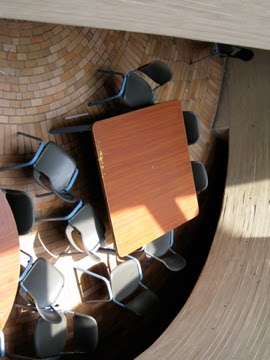Interesados en un proceso deliberativo y participativo amplio, y amparados en los principios democráticos de mayor apertura, una vez más la Legislatura decide abrir a discusión un proceso de vistas públicas con la mayor de las transparencias (lo se, algunos son escèpticos al sarcasmo pero no puedo evitarlo en estas circunstancias). En serio ahora: se trata de un nuevo proyecto de ley que nos preocupa grandemente, para re-estructurar agencias del ejecutivo, cambiar los procesos de solicitudes y adjudicación de permisos y alterar los procesos de participación ciudadana. Es el P. del S. 880, Nueva Ley de Permisos. Las vistas públicas fueron pautadas sorpresivamente para mañana domingo. Sin entrar en los detalles sustantivos de este proyecto o proyectos similares, nuevamente censuramos de antemano los subterfugios evidentes para evadir la participación de la ciudadanía en vistas públicas sobre proyectos de tanto interés público, como parte de una serie de eventos de evidente corte y tendencias anti-democrática.
Se convoca a todos y todas a asistir:
Que: Vistas Publicas Sobre la Nueva Ley de Permisos
Cuando: DOMINGO a las 9:30AM
Donde: En el Sótano del Capitolio frente la Cafetería, Salón María Luisa Arcelay
El Sierra Club convoca a asistir a las vistas y expone algunas razones de peso para ello:
- Cambiaria la manera en que proceden y aprueban los permisos por completo
- La medida es 170 paginas y están dando vistas publicas en un domingo sin aviso
- Preocupaciones
- No ha habido oportunidad de leer la medida para evaluarla y discutirla bien
- Algunos aspectos en el proyecto de ley:
- Una nueva agencia seria el proponente para todo proyecto propuesto en Puerto Rico
- Limite a la intervención ciudadana en los procesos administrativos
Por nuestra parte, no hemos tenido oportunidad de ver el proyecto y analizarlo para emitir comentarios. Esperamos poder hacerlo en la próxima semana e integrarnos a los trabajos. Los mantendremos informados de lo que vaya aconteciendo por aquí.

